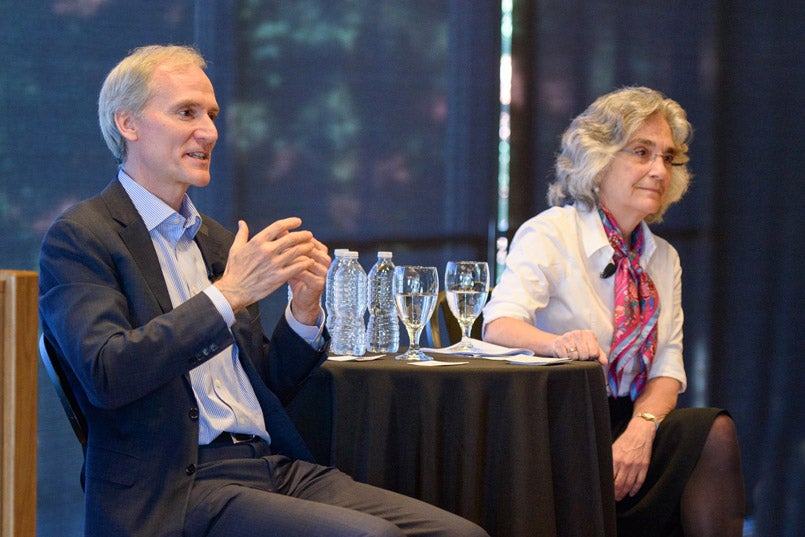November 28, 2017
Spotlight on sexual misconduct
In recent weeks, there has been a spotlight on sexual assault and sexual misconduct perpetrated by individuals abusing their positions of authority and influence in every industry and organization, including higher education. Women are coming forward and their voices are being heard, including women who have been part of the Stanford community. It is a spotlight that I welcome.
For far too long, conduct that today we find abhorrent and unacceptable was in fact tolerated—in the workplace, in the classroom and on our campus. In particular, intimate relationships between faculty members and students in their classes and labs were tolerated, and the potential detrimental impact on students was overlooked.
Since 2002, Stanford has been strengthening its policies to help prevent this from happening here. In 2013, consensual sexual or romantic relationships were prohibited between faculty members and undergraduate students as well as between faculty and graduate students for whom the faculty member has or may in the future have academic responsibility. This essentially includes any faculty member in the graduate student’s department or fields of study.
This consensual relationship policy protects students from the potential abuse of power inherent in any relationship with a teacher or mentor. Under our current processes, a faculty member who is found following an investigation to have violated this policy is subject to discipline up to and including dismissal from the university.
We have recently received concerning allegations involving a former faculty member that date to 1984 when he was teaching at UC Berkeley. Another report is about the university’s handling of a case from 2001 involving a professor now deceased. While we cannot speak to any specific cases due to privacy laws, we consider every case of sexual violence one case too many. As new cases are coming to the attention of the university, even if they may have taken place decades ago, we are initiating investigations through the Title IX Office. We will take action as findings warrant.
It is important for any member of our community who experiences sexual harassment or sexual violence to come forward. The university cannot take action without a report.
There is more we can do, and we continue to ask members of the community to give us feedback on our processes and policies related to sexual harassment and violence. We welcome the conversations that are occurring here, about what the university did, or could have done differently, in the past. We learn from every single case and every situation. The recent spotlighted cases are no exception.
